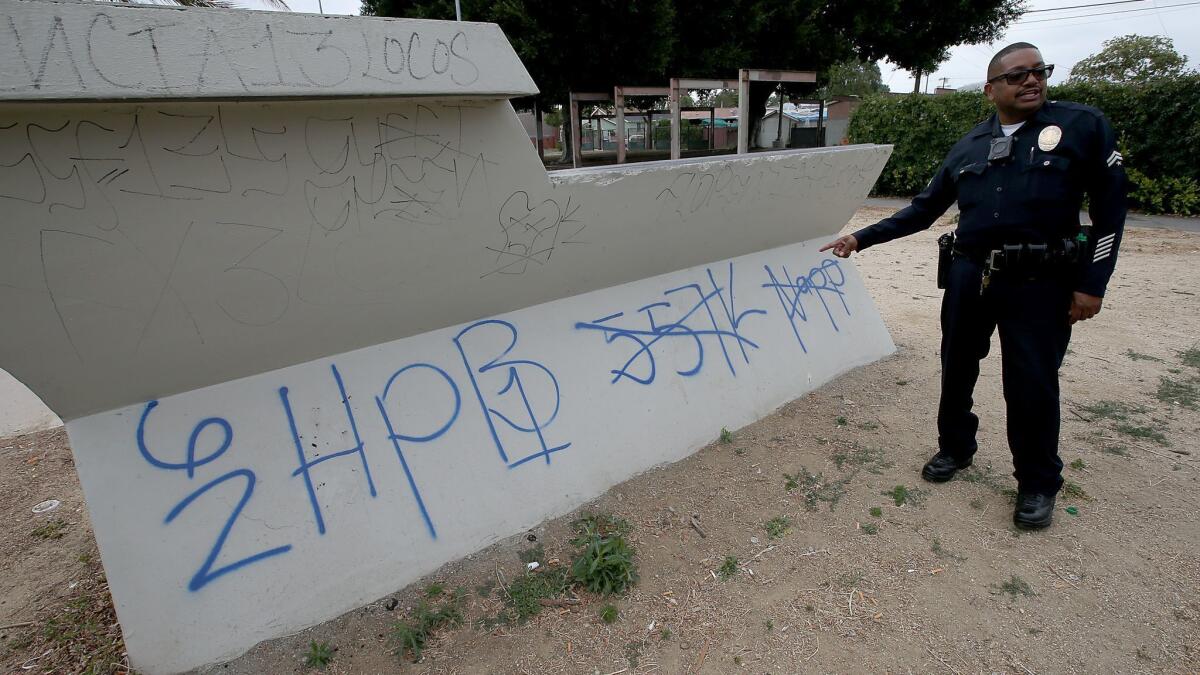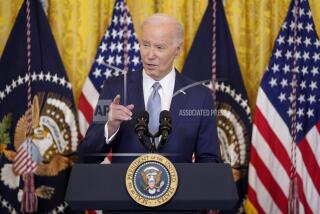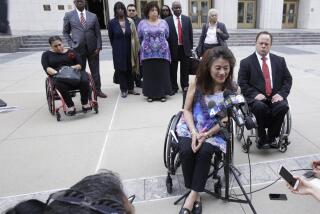Federal judge bars Trump administration from tying immigration enforcement to anti-gang money

A federal judge in Los Angeles ruled Friday that the Trump administration overstepped its authority by requiring local law enforcement to cooperate with federal immigration officials in order to qualify for police grants used to fight gangs.
In another blow to the Trump administration’s campaign against so-called sanctuary cities, U.S. District Judge Manuel Real issued a permanent injunction against the administration’s application of immigration enforcement conditions to the funding.
The city of Los Angeles, whose police department does not provide information on immigration status to federal authorities, sued the Trump administration in October seeking an end to such conditions, which include notifying federal authorities 40 hours before releasing an immigrant in the country illegally and allowing immigration agents into jails.
Law enforcement officials in Los Angeles and other jurisdictions have argued that requiring them to provide immigration information to federal authorities deters people who are victims of or witnesses to crime from coming forward.
The ruling came hours after California announced plans to sue the Trump administration over its declaration of a national emergency at the southern border in an attempt to divert money from other projects for a border wall that Congress refused to fund.
“It’s particularly timely today because the administration again and again flouts the most basic constitutional principles,” said Los Angeles City Atty. Mike Feuer. “The administration does not have the authority to make an end-run around Congress again and again with regard to public safety grants that are essential to our safety.”
The U.S. Department of Justice issued the following statement:
“The policies of sanctuary jurisdictions endanger communities and innocent Americans all across this country, and this decision does not change that simple fact,” DOJ spokesman Steven Stafford said. “Further, the scope of the injunction is far broader than conceivably necessary. We are closely evaluating this decision and considering our options.”
The requirements affected two types of federal grants in particular: the Gang Suppression Planning Grants Program and the Edward Byrne Memorial Justice Assistance Grant, anti-gang money distributed annually based on a state’s population and violent crime rate.
Until 2017, when the Trump administration sought to apply the immigration enforcement requirements, Los Angeles had received $1 million or more in Byrne JAG money each year since 1997.
The conditions, Real said in his ruling, “upset the constitutional balance between state and federal power by requiring state and local law enforcement to partner with federal authorities.”
Feuer called it a win for public safety.
“It has been extremely important for public safety in Los Angeles that all communities, including immigrants, cooperate with law enforcement when they are victims or witnesses of crime,” Feuer said. “The Trump administration’s efforts to make Los Angeles complicit in civil immigration enforcement undermines local decisions about how we can best keep our streets safe.”
Real issued a similar injunction in September 2018 that barred the Trump administration from using such conditions for the purposes of doling out the 2017 Byrne JAG funds. The Department of Justice has appealed that ruling and is awaiting a hearing date.
In April of last year, Real ruled that the Trump administration’s use of similar conditions for community policing programs was also unlawful.
For more on California politics, follow @cmaiduc.
More to Read
Get the L.A. Times Politics newsletter
Deeply reported insights into legislation, politics and policy from Sacramento, Washington and beyond. In your inbox three times per week.
You may occasionally receive promotional content from the Los Angeles Times.











